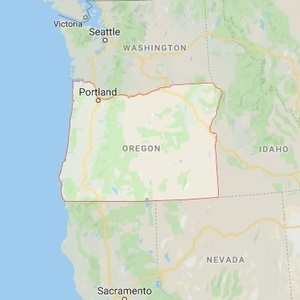Oregon DEQ releases timeline for Clean Fuels Program expansion

May 28, 2020
BY Erin Krueger
The Oregon Department of Environmental Quality announced this month it has submitted detailed information to Gov. Kate Brown on how it plans to carry out her March 10 executive order that set a new goal for greenhouse gas (GHG) reduction.
The plans submitted by DEQ include a preliminary report on cap and reduce programs, and work plans related to clean fuels, strategies to reduce GHG emissions from transportation, regulations to reduce methane emissions from landfills, and strategies to reduce food waste.
One provision of the March 10 executive order directs state agencies to expand the Oregon Clean Fuels Program to enable the state to reduce the average amount of GHG emissions per unit of fuel energy by 20 percent below 2015 levels by 2030 and 25 percent below 2015 levels by 2035. The work plan submitted by DEQ describes the steps necessary to carry out the expansion of the Clean Fuels Program and includes a high-level summary of some of the key policy issues that will be addressed leading up to and including rulemakings by the state’s Environmental Quality Commission.
Advertisement
Advertisement
The Clean Fuels Program work plan also includes a proposed timeline for expansion of the program. A formal rulemaking for the expansion of the program is expected to begin near the end of the third quarter of 2021. Until that time, the agency plans to undertake several studies and other activities related to the future rulemaking.
Another provision of the March 10 executive order directs state agencies to take actions necessary to reduce gas emissions from landfills as part of the state’s goal to achieve GHG reductions of at least 45 percent by 2035 and 80 percent by 2050. According to the work plan, the DEQ plans to begin developing a rulemaking on landfill gas during the fourth quarter of this year. Landfills would be required to submit design plans for methane gas collection systems in late 2021 and early 2022. Landfills would install approved methane gas collection systems beginning in 2023. The work plan also briefly discusses compliance measures that may be available to landfills seeking alternative compliance pathways, such as decreasing incoming volumes of cardboard, paper fibers, grass clipping and similar materials.
Advertisement
Advertisement
The DEQ said it will be holding virtual workshops and listening sessions on program options related to the March 10 executive order over the next six months.
“Oregon DEQ is committed to listening to all Oregonians, including community and business leaders, as we develop the specifics of how these programs are going to work,” said Richard Whitman, director of the DEQ. “We recognize that Oregon is in the midst of another crisis—the COVID-19 crisis—and DEQ is building those challenges into how we are approaching this effort. At the same time, we also recognize that Oregon and the rest of the world are running out of time to begin bringing greenhouse gas emissions under control. The governor has given us 18 months to get this work done, and we are going to do our very best to deliver a fair, thorough and well-founded set of programs that will put Oregon on the path to doing its part in combatting climate change.”
Additional information is available on the Oregon DEQ website.
Related Stories
While final IRS guidance is still pending, the foundation of the 45Z program is well defined. Clean fuel producers should no longer be waiting; they can now move forward with critical planning and preparation, according to EcoEngineers.
The IRS on July 21 published a notice announcing the 2025 calendar-year inflation adjustment factor for the Section 45Z clen fuel production credit. The resulting adjustment boosts maximum the value of the credit by approximately 6%.
The U.S. Senate on July 23 voted 48 to 47 to confirm the appointment of Aaron Szabo to serve as assistant administrator of the U.S. EPA’s Office of Air and Radiation. Biofuel groups are congratulating him on his appointment.
U.S. Secretary of Agriculture Brooke L. Rollins today announced the reorganization of the USDA, refocusing its core operations to better align with its founding mission of supporting American farming, ranching, and forestry.
The U.S. Department of Energy’s Office of Energy Efficiency and Renewable Energy is soliciting public comments on a preliminary plan for determining provisional emissions rates (PER) for the purposes of the 45Z clean fuel production credit.
Upcoming Events










